European Pear : FLEMISH BEAUTY Large Semi-Dwarf (OHxF97) (Orchard Grade)
$37.95
An 'orchard grade' is a tree that may be somewhat shorter, slightly crooked, or a bit scratched, or for some other reason is not a perfect front lawn specimen. These trees will work just as well in an orchard as a first or number one would, since they still produce the very same fruit.
Discovered in a wooded area of Flemish Belgium back around 1800. In about 1920, Ulysses Hedrick of Geneva, NY, published his 'Cyclopedia of Hardy Fruits', highly recommending this pear and describing it thus "A bright-cheeked Flemish Beauty is as handsome as any pear and is almost unapproachable in quality; the flavour is nicely balanced between sweetness and sourness, very rich, and has a pleasing muskiness". After sampling some enormous, juicy Flemish Beautys that a local orchardist insisted we try, we are on Ulysses Hedrick's team. Some serious winter hardiness in this selection.
NEEDS A POLLENIZER | ZONE 3 | HARVEST: LATE SEPT.
Only logged in customers who have purchased this product may leave a review.
Growing Tips
All European (regular) and Asian pears will pollinate each other providing their bloom times overlap. Generally you can go by the expected harvest time, meaning only the very early and the very late might not be compatible with each other. However, since Asian pears, on average, bloom earlier than Europeans, you might pair an early European with a mid or late Asian.
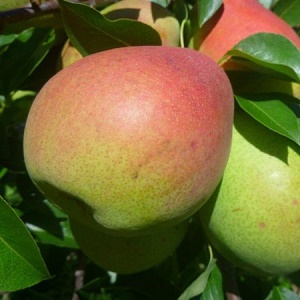
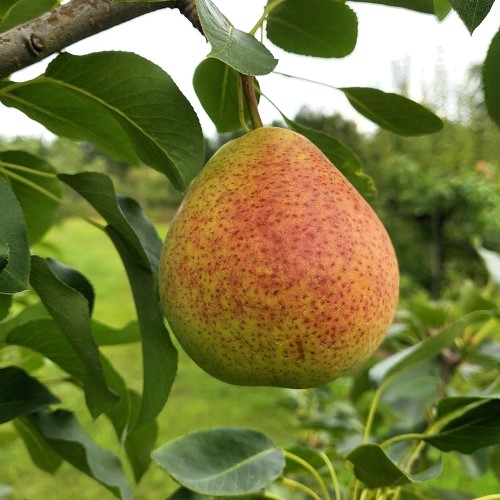
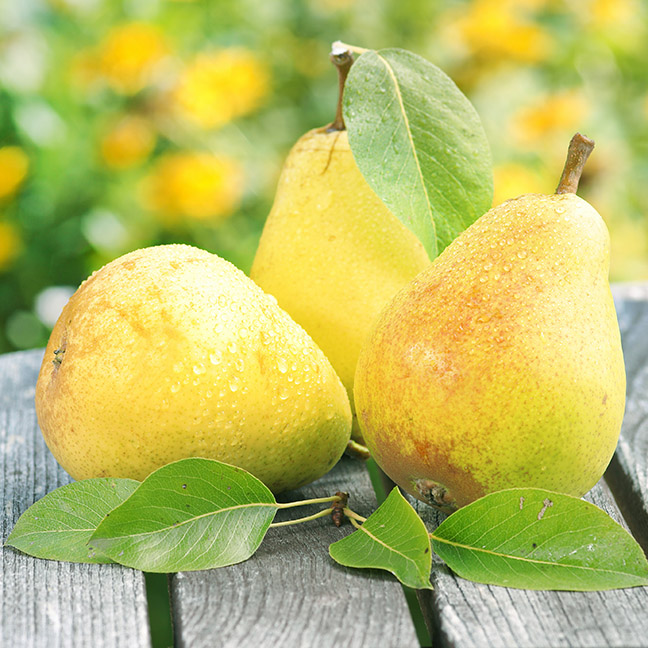
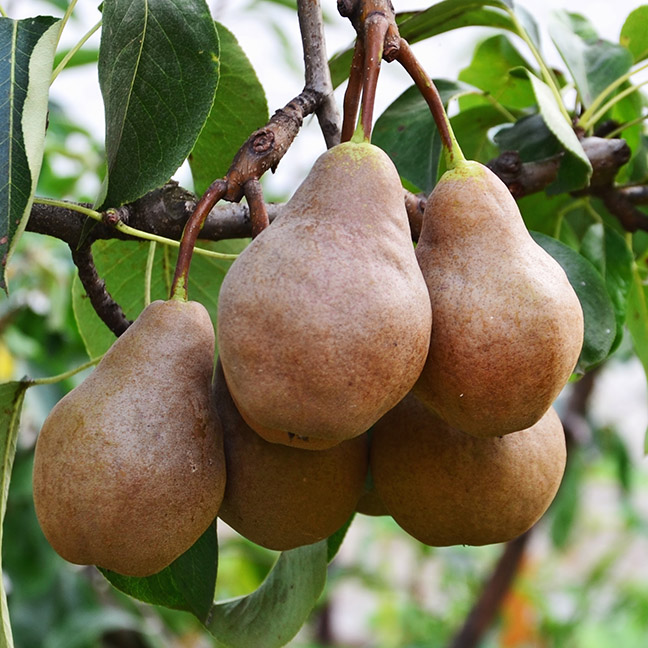
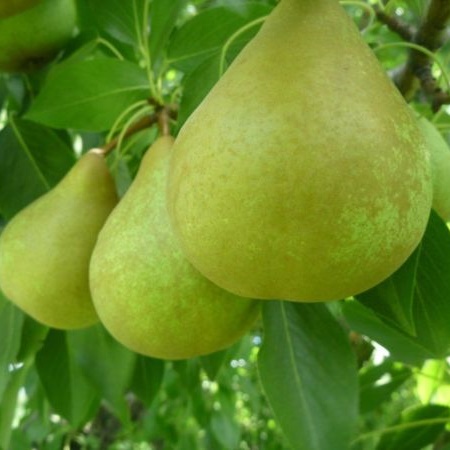
Reviews
There are no reviews yet.